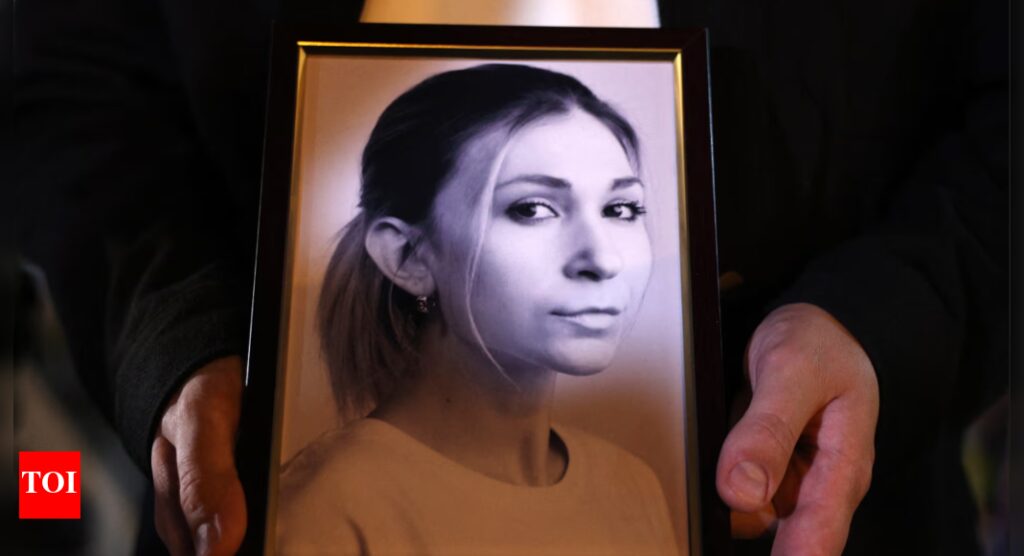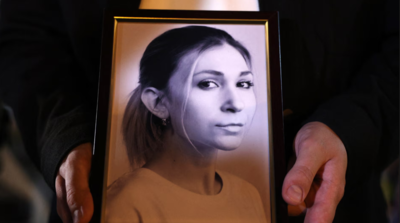Brain removed, bones broken, head shaved, electrocuted: Who was Viktoriia Roshchyna? Ukrainian journalist’s horrific end in Russian custody, says report

When the remains of 757 Ukrainian military casualties were exchanged in a frozen forest in February, Red Cross officials noted a disturbing anomaly: body number 757 was recorded as “NM SPAS”, an unidentified male, cause of death listed as heart failure.
Weeks later, forensic experts identified the corpse: it was Viktoriia Roshchyna, a 27-year-old Ukrainian journalist, not a soldier, who had been missing since July 2023.
A chilling report has alleged that Ukrainian journalist Viktoriia Roshchyna was subjected to severe torture while in Russian custody, including the removal of her brain, broken bones, electrocution, drugging, starvation, and other degrading acts.
As per the reports by Guardian, Roshchyna was not just another victim of war. She was one of Ukraine’s most fearless civilian reporters, venturing deep into occupied territories to document crimes the Russian state wanted hidden. Her final journey was a mission to uncover secret detention sites and expose the use of torture on civilians. Instead, she became one of their victims.
Abduction, knife scars, electric shocks, and starvation
On July 25, 2023, Roshchyna crossed into Russia through Latvia under her own name, taking a circuitous route to reach Melitopol in the occupied Zaporizhzhia region. Her phone went dark soon after.
Witness accounts now help reconstruct the horror that followed.
She was first detained in Enerhodar after allegedly being spotted by a drone. After a brief holding at the local police station, she was moved to a torture site in Melitopol known as “the garages”, controlled by the FSB.
According to a former cellmate, interrogators subjected Roshchyna to repeated electric shocks, evidenced by burn marks found on her feet during autopsy, and stabbed her in the arms and legs, including a 3cm deep puncture in her forearm. A gaping 5cm wound above her heel appeared to have caused her particular agony.
Roshchyna reportedly begged her torturers not to reopen an older wound on her heel. They didn’t listen. “She said: ‘I begged them not to touch that wound,’” the witness recalled. Her captors ignored her pleas, according to the report. “She said one guy, she called him a jerk … was brutal, unhinged,” the witness said.
Drugged and broken in Russia
Later, Roshchyna was transferred to SIZO-2, a notorious pre-trial detention facility in Taganrog, Russia. Detainees there recall she arrived drugged and disoriented. “She basically started to go crazy,” said one witness. She was kept in isolation, food-deprived, and deteriorated rapidly.
Weighing barely 30kg, she was unable to lift her head without help. “I would prop her up and she would grab the top bunk to pull herself up,” said her former cellmate.
Her hair was shaved, ribs broken, and abrasions covered her body. Witnesses said she stayed curled up on the floor, hidden behind a curtain, afraid and barely responsive. “Her eyes were terrified. She didn’t speak. She stopped eating,” said another inmate.
Taganrog is infamous for its methods: prisoners are routinely electrocuted, waterboarded, and forced into prolonged stress positions. Food portions were rationed to four and a half spoonfuls per plate. It was in these conditions that Roshchyna slowly starved.
Signs of strangulation, missing organs
When her body was finally returned, it bore unmistakable signs of prolonged torture. The hyoid bone in her neck — often broken in cases of strangulation — was fractured. Crucially, her brain, eyes, and larynx were missing, making it nearly impossible to confirm the exact cause of death.
Ukrainian prosecutors say the mutilation suggests an attempt to hide the extent of neurological or asphyxiation injuries.
She had made only one call during her detention — four minutes to her parents, nearly a year after her disappearance. That was the last time anyone heard her voice.
Authorities have opened a war crimes investigation, but prosecution may be elusive. Still, over 50 interviews with survivors and insiders have helped paint a horrifying portrait of systemic abuse.
“She died trying to expose exactly what happened to her,” Sevhil Musaieva, her editor at Ukrainska Pravda was quoted as saying. “Viktoriia had no personal life. Her entire world was her mission.”







